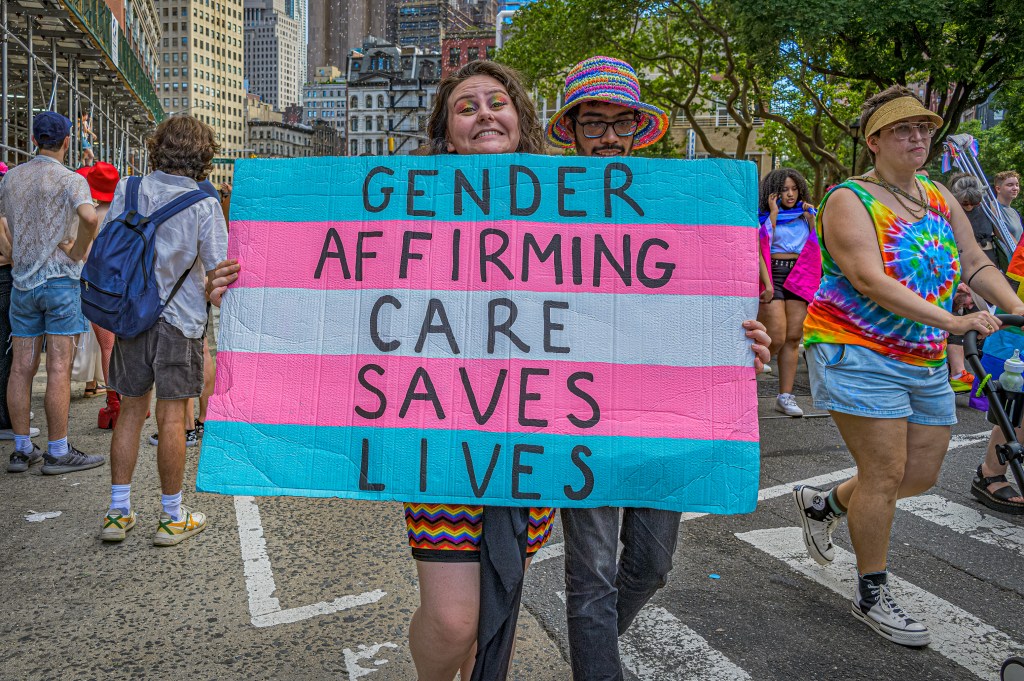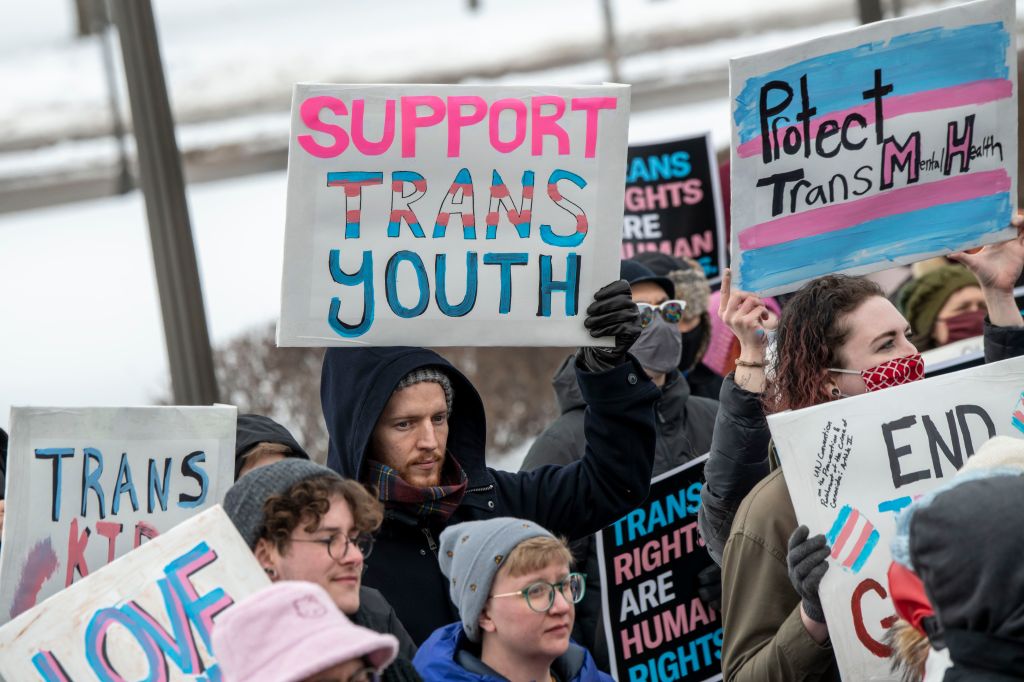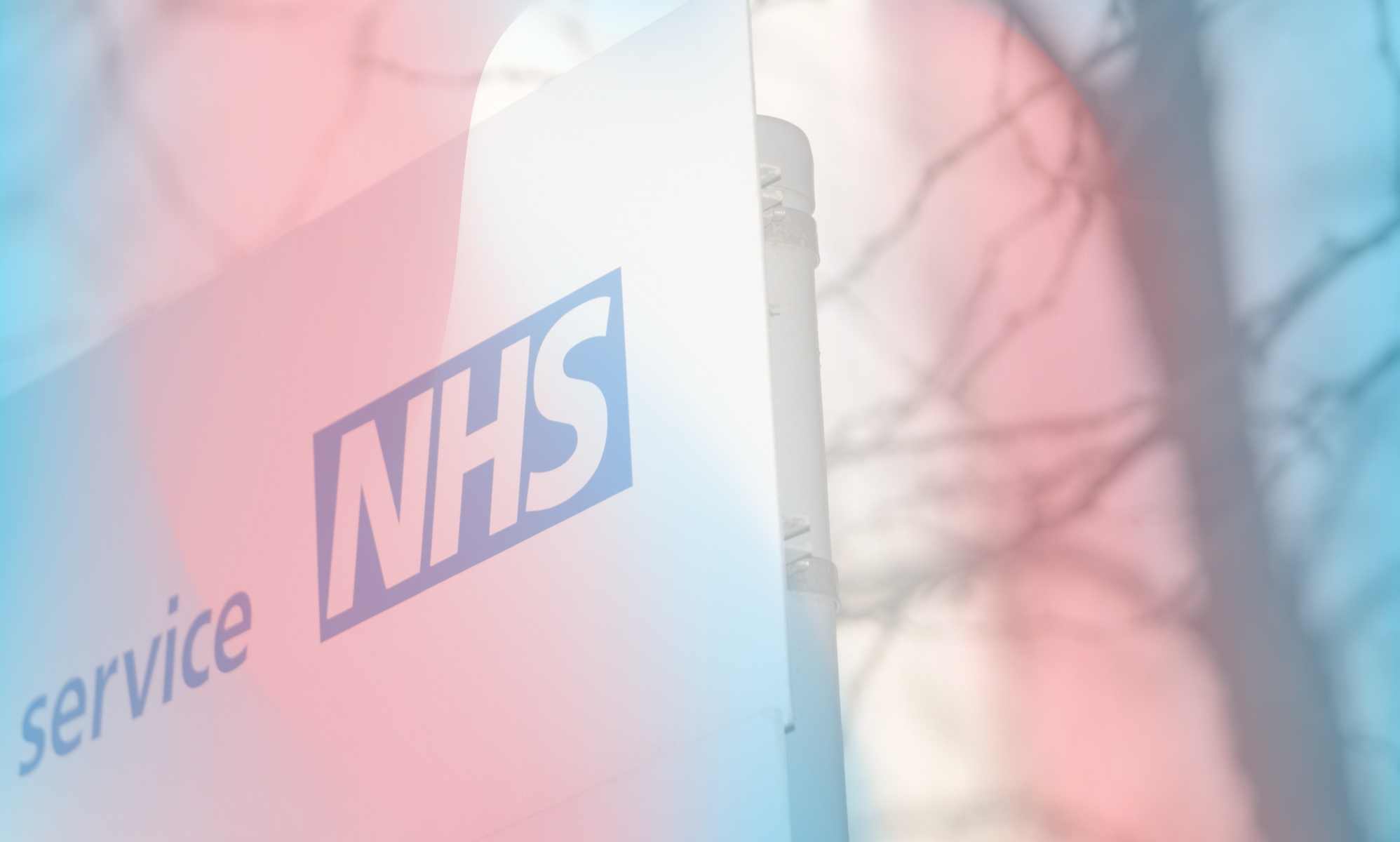Low NHS satisfaction rates are the tip of the iceberg if you’re trans
Public satisfaction with the NHS is at an all time low – but if you are trans, that’s just the tip of the iceberg.
The long-running British Social Attitudes survey has been carried out since 1983 and has found in its most recent research that just 24 per cent of the public are happy with the NHS – the lowest figure ever recorded.
This is a huge drop on the all-time high of 70 per cent recorded in 2010 and down five percentage points on last year.
The most commonly cited issues from those surveyed were long waiting times, staffing shortages and lack of funding.
Whilst these figures and the reasons behind them make for grim reading, if you are trans they will be by no means surprising.
Research has previously shown that 86 per cent of trans people feel waiting times have negatively impacted their mental health.
These are waiting times which, bear in mind, could be decades long if the current state of affairs for trans health care continues.

The Transition Access Survey 2022 by Trans Actual polled more than 1,000 UK-based trans people on their experiences in accessing gender-affirming care, including accessing private healthcare and referrals to a Gender Identity Clinic (GIC).
At the time, it found just 15 per cent of those referred to a GIC after 2017 had attended their first appointment by the time they were surveyed.
These “extreme” wait times have resulted in a High Court case against NHS England, bought by four trans people, trans-led charity Gendered Intelligence and the Good Law Project.
The case, which went to appeal, was dismissed by the High Court in August 2023 and upheld a decision that a policy for NHS England’s duty to refer 92 per cent of patients on a waiting list to specialist clinics within 18 weeks was not enforceable and only a “target duty.”
When the ruling was issued, legal officer at Good Law Project, Bekah Sparrow, said it was “not what we hoped for” and NHS patients were being “let down once again”.
She said: “Good Law Project wants to see a world in which everyone, regardless of their gender identity, is able to access the healthcare they need within reasonable timeframes.
“We continue to stand alongside the transgender community, and all NHS patients, as we work towards a fairer world.”
More recently, it was announced that trans youth will no longer be prescribed puberty blockers at NHS England gender identity clinics. Last year, fewer than 100 young people in England were prescribed puberty blockers.
Trans youth charity Mermaids said the announcement was “deeply disappointing” and represented a “further restriction of support offered to trans children and young people through the NHS, which is failing trans youth”.
In a statement to PinkNews following the British Social Attitudes survey findings, Robbie de Santos – director of campaigns and human rights at Stonewall, said: “Trans people continue to experience extensive discrimination in general healthcare, and waiting times for transition-related healthcare often exceed five years – well beyond NHS’ maximum waiting times.
“Trans patients deserve better, and it is vital that the NHS works at pace to increase capacity for trans healthcare services and deal with the lack of understanding and confidence among the wider healthcare workforce that stops trans people getting the care they need, when they need it.”

In an op-ed for PinkNews, reporter Amelia Hansford noted it is a “scary time to be a gender-questioning youngster in the UK” with the “all-too-common adolescent fear of knowing your place in the world is exacerbated by feelings that you know are incredibly real, but, whether intentionally or not, are treated as a sickness by those around you”.
She wrote: “All of this has culminated in what has essentially become a disastrous stagnation, which the NHS would rather turn its back on than address.
“Try as it might, no amount of covering its ears and closing of eyes is going to magically make the dysphoria of these young people go away.”
Commenting on the latest British Social Attitudes survey more widely Chris Hopson, chief strategy officer at NHS England, said: “Whilst these findings reflect the sustained pressure and disruption facing NHS services last Autumn, it is extremely welcome to once again see overwhelming public support for the founding principles of the NHS.
“Over the last 12 months as the NHS has continued to recover from the pandemic, frontline services have responded to significant increases in demand, with October seeing the most A&E admissions since January 2020 and GP teams delivering 53 million more appointments last year compared to pre-pandemic levels.
“Coupled with the impacts of a year of strike action, this has affected the experiences of some patients, which we know has been very frustrating.
“However, thanks to the hard work of staff, NHS teams have delivered more elective activity in 2023 than in any other year since the start of the pandemic, with over 17.3 million people treated.
“It is also encouraging to see a slight increase in public satisfaction with emergency care services over the surveyed period.
“While there is still much more to do, the NHS’s plans to recover access to emergency, primary and dental care and reduce cancer, ambulance and elective waiting times are helping the NHS to deliver improved care for patients.”







